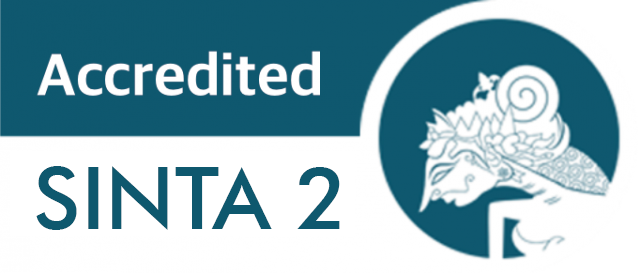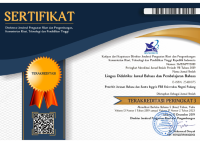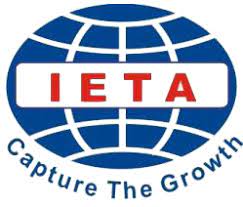Increasing the Effectiveness of Teaching and Learning Process through English Classroom Management
 ), Farida Repelita Waty Kembaren(2), Didik Santoso(3),
), Farida Repelita Waty Kembaren(2), Didik Santoso(3), (1) Islamic University of North Sumatera (UINSU)
(2) Islamic University of North Sumatera (UINSU)
(3) Islamic University of North Sumatera (UINSU)
 Corresponding Author
Corresponding Author
Copyright (c) 2023 Lingua Didaktika: Jurnal Bahasa dan Pembelajaran Bahasa
DOI : https://doi.org/10.24036/ld.v17i2.124325
Full Text:
 Language : en
Language : en
Abstract
Classroom management is a significant factor in the success of teaching and learning activities. This is a conscious effort to regulate the activities of the teaching and learning process systematically, including preparing teaching materials, providing facilities, organizing class and creating a conducive learning atmosphere, so that learning objectives can be achieved well. The purpose of the research conducted intends to find out: (1) How far the implementation of classroom management? (2) Is the learning process effective?, (3) What are the inhibiting and supporting factors in implementing classroom management?, (4) What efforts are made by the teachers and schools in increasing the effectiveness of English classroom management?. This research uses descriptive qualitative methods. The participants are a headmaster and three English teachers. The results show that classroom management has not been done maximum, the teachers’ way in teaching are still monotonous, so that the students are not interested in following the learning process. Then it is found that there are some students that lack of discipline and do not follow the teachers’ regulation in the class. Even though the implementation is still not optimal, but the teachers keep spirit and tries their best in increasing classroom management more optimal. As for the efforts that will be made by the teacher in implementing classroom management in order to increase the effectiveness of learning is by preparing administrative tasks properly, using methods and media varied learning, and instilling students’ discipline in learning English.
Keywords
References
Afriza. (2014). Manajemen Kelas (Pekanbaru: Kreasi Edukasi Publishing and Consulting Company.
Ahmad Rohani. (2014). Pengelolaan Pengajaran. Jakarta: Rineka Cipta.
Ametembun. (1981). Manajemen Kelas. Bandung IKIP Bandung.
Bahri,. S & Djamara. (2015) Strategi Belajar Mengajar, Jakarta: Rineka Cipta.
Idochi, Anwar. (1987). Kependidikan dalam proses belajar mengajar. Jakarta: Angkasa.
Irfan Rozaki. (2017). “Pengelolaan Kelas dalam Meningkatkan Efektivitas Pembelajaran Fiqh Siswa Kelas VIII di MTsN Gondangrejo Karanganyar tahun pelajaran 2017/2018” Surakarta: UIN Surakarta.
Karwati, E. & Priansa,. D. (2015). Manajemen Kelas (Classroom Management), Bandung: ALFABETA.
Madinatul Munawwaroh. (2012). Skripsi: “Manajemen Kelas dalam Meningkatkan Efektivitas Pembelajaran PAI di NU Karang Anyar Indramayu Jawa Barat” (Yogyakarta: UIN Sunan Kalijaga.
Sidiq., U. (2014). Manajemen Madrasah ‘Manajemen Kelas Yang Efektif’, Akuntabilitas Manajemen Pendidikan. Ponorogo: CV.Nata Karya.
Sudjana, Djudju. (2004). Manajemen Program Pendidikan. Bandung: Falah Production.
Supardi. (2013). Sekolah Efektif; Konsep Dasar dan Praktiknya. Jakarta: Rajawali Press.
Tim Dosen Administrasi Pendidikan Universitas Pendidikan Indonesia. (2012). Manajemen Pendidikan. Bandung: Alfabeta.
 Article Metrics
Article Metrics
 Abstract Views : 361 times
Abstract Views : 361 times
 PDF Downloaded : 85 times
PDF Downloaded : 85 times
Refbacks
- There are currently no refbacks.
Copyright (c) 2023 Lingua Didaktika: Jurnal Bahasa dan Pembelajaran Bahasa

This work is licensed under a Creative Commons Attribution-NonCommercial 4.0 International License.









